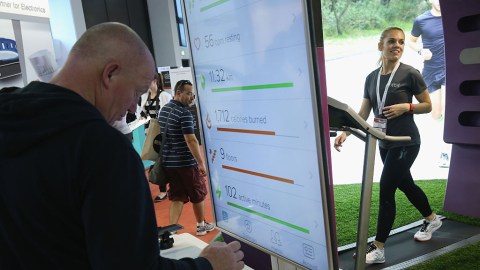How Your iPhone Can Become a Better Doctor

You might not be surprised anymore to hear that your smartphone can act as a tool for diagnosing and managing your health. Numerous apps and wearable fitness devices are on the market, all with the goal of supposedly making it easier to manage your health. With the aid of a screen you can now be aware of pretty much any one of your vital signs or of the local environmental indicators. But how do we know which apps we should download and which ones won’t actually be helpful to us in the end?
Despite all the hype, apps are definitely not at the point where they can replace an actual, physical doctor. For example, the app Instant Blood Pressure incorrectly diagnosed blood pressure for a majority of readings, and the app SkinVision could only identify “dangerous skin melanomas” 10 percent of the time. Some apps that track mood or other health indicators don’t prompt users to call 911 or refer them to health providers after taking dangerous readings. Health apps have a heavy burden to carry when it comes to responsibility and liability.
The Federal Trade Commission (FTC) decided to get involved by building a web tool to help health app developers better understand the federal regulations that they need to take into account in building their software. There are a lot of laws out there, and even when a developer intends to do the right thing in building his or her product, it’s easy to forget something. With the FTC tool, developers might have a better sense of when they need to continue iterating their model to produce a safer app.
Some might wonder whether by holding health apps to different standards than other apps we aren’t simply requiring too much of developers. What is the role of users to discern for themselves where to place their trust? Wherever you fall on the issue, it seems as though the FTC’s guidance should assist health developers in putting out more helpful products. At least, for those that decide to make use of the tool.
—
Image: Sean Gallup / Staff via Getty Images





